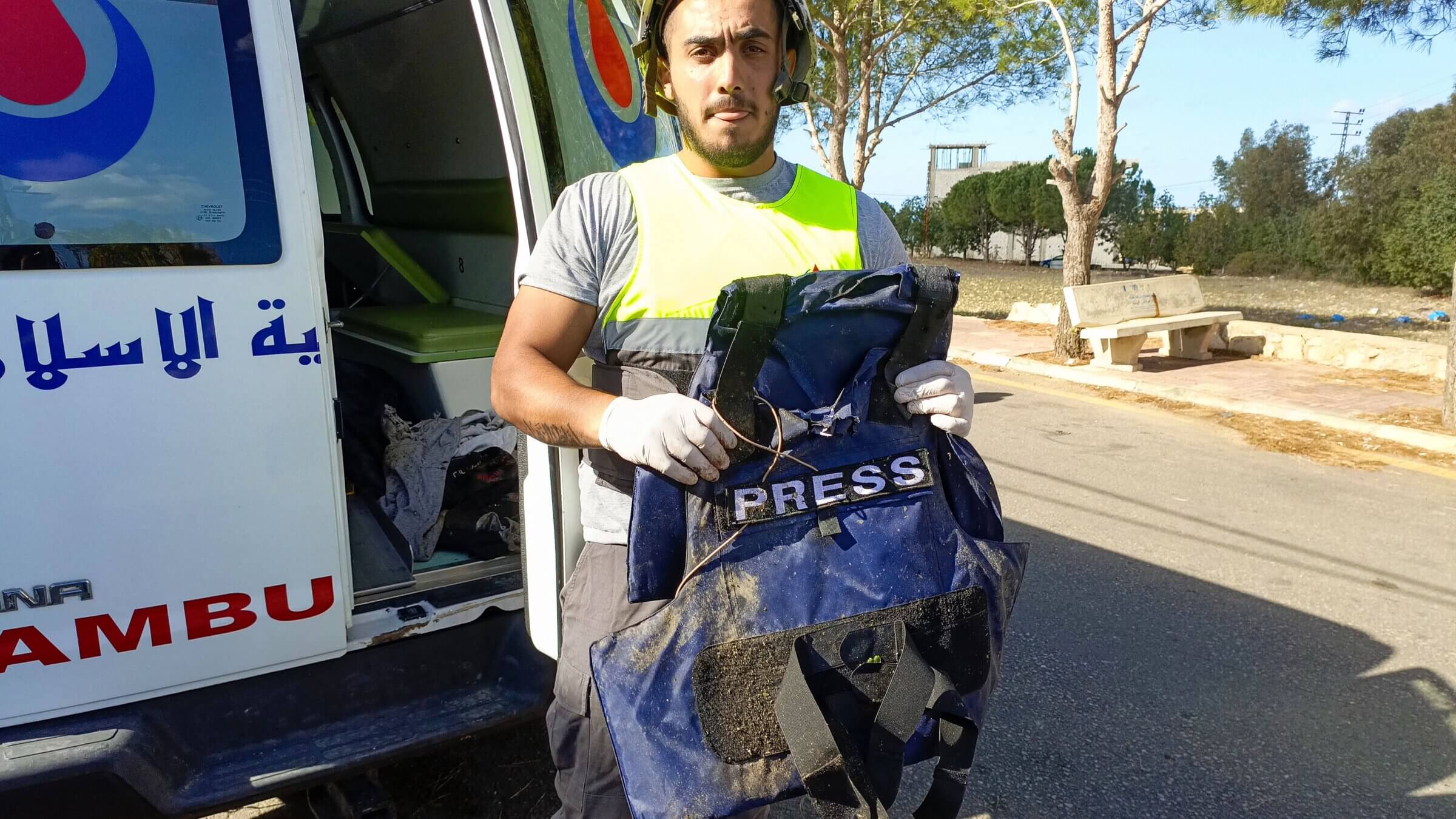A 25-year-old Lebanese TV reporter and her cameraman are latest journalists to die covering the war
Total number of media workers killed since Oct. 7 is 53, highest casualty toll for journalists in 30 years

A Lebanese Hezbollah rescuer holds a bulletproof vest that belonged to one of the Al Mayadeen journalists killed in an Israeli bombardment of Tair Harfa, Lebanon, on Nov. 21, 2023. Photo by Kawnat Haju/AFP via Getty Images
A young Lebanese TV reporter and her cameraman on Tuesday became the latest journalists killed in the Israel-Gaza war, bringing the total number of media workers who have died in the conflict to 53, according to the Committee to Protect Journalists.
More journalists have died in the past six weeks covering this war than at any other time since CPJ began tracking the numbers more than 30 years ago, the organization said.
Correspondent Farah Omar and cameraman Rabih Me’mari were killed by an Israeli strike in Tair Harfa in southern Lebanon while reporting on military activity on the border with Israel. They worked for Al Mayadeen, described by The Associated Press as a Beirut-based, pan-Arab channel allied with the Lebanese militant group Hezbollah.
In a post on the social media platform X, Al Mayadeen accused Israel of “deliberately” targeting the pair, saying they were “martyred” right after ending a live broadcast.
Omar, 25, who held a master’s degree in journalism from Lebanese University, joined Al Mayadeen in 2021. Me’mari, 44, had worked for the station since 2012 and leaves behind a wife, Manal Jaafar, who also works for Al Mayadeen, and two children, ages 4 and 2.
This was the last report this morning by Farah Omar, a reporter for the Al-Mayadeen TV, before she was killed by an Israeli artillery bombardment while reporting from the village of Tayr Harfa in southern Lebanon. pic.twitter.com/osr8WHS872
— Quds News Network (@QudsNen) November 21, 2023
CPJ counts 46 Palestinians, four Israelis and three Lebanese — including Omar and Me’mari — among the 53 journalists who have died covering the war that began with Hamas’ Oct. 7 attacks in Israel. In addition, 11 journalists have been injured, three are missing, and 18 have been arrested, CPJ said. Most of the arrests were carried out by Israeli soldiers raiding Palestinian journalists’ homes in the West Bank.



















